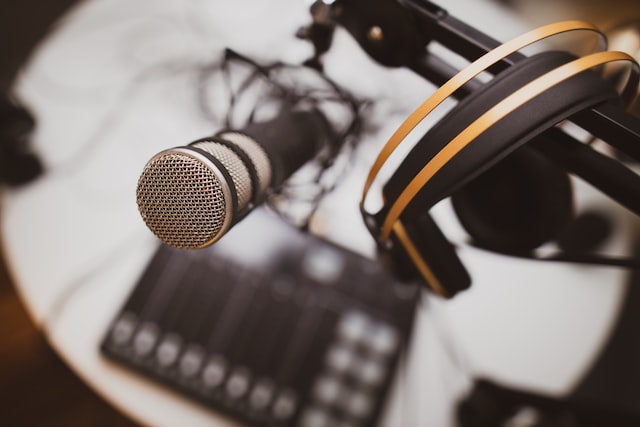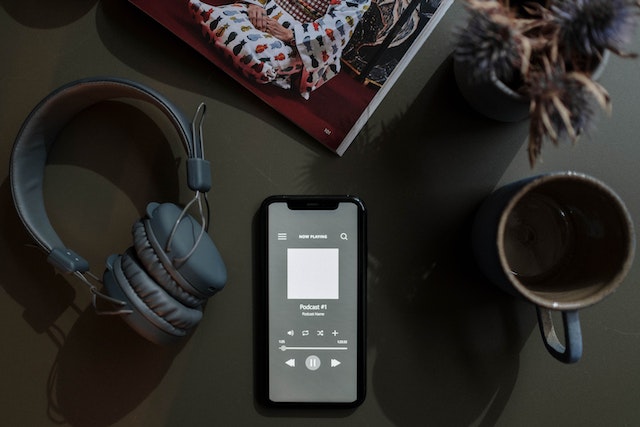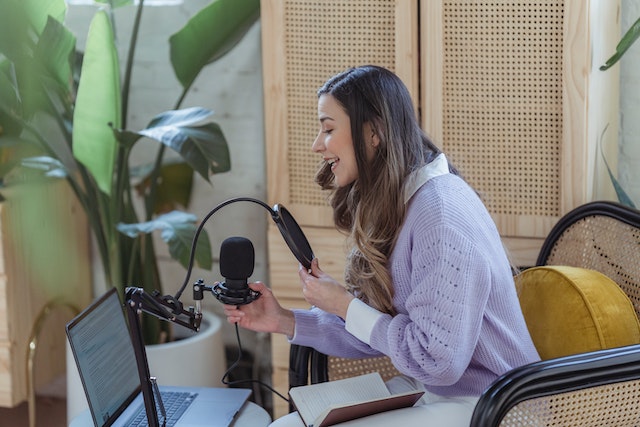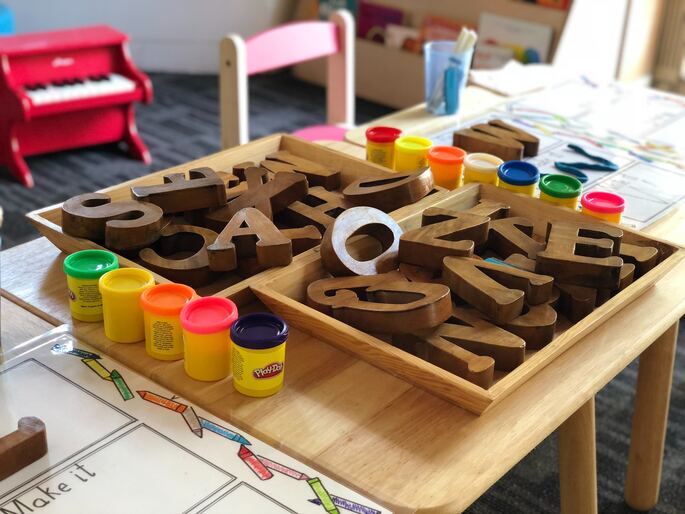I remember when I was young that I would listen to the radio and later a podcast, and I would think about how people on the radio sounded so cool. These amazing voices made me have fantasies of being a radio jockey someday. Most people who had an opportunity to become an RJ are few since radio stations are less vast than they once were. The good news is that podcasts have become vaster, so the dream is still alive for most people.
The platforms that host podcasts make this dream even more realistic. Anyone can set up a podcast channel. All you need is some knowledge and some equipment. Of course, you also need that special something that separates you from the rest. To help you on this journey of fulfilling your dream, we gathered some amazing experts about starting your podcast. That way, we can help you cover the knowledge part that is required.
Why a Podcast?
Why is any podcast an important tool?
If you’re considering producing your own podcast, know that your show can be a remarkable marketing tool and a terrific way for you to grow as an expert in your industry. But a podcast is not a quick marketing fix. On average, it will take you approximately 18 months to build a following, according to Joe Pulizzi, founder of the Content Marketing Institute, and even longer to see your investment of time and money pay off in the way of customer leads. Therefore, approach your show as a passion project because it will be your dedication to consistently producing timely, quality content that will get your show heard and followed on a global scale.
I’ve been producing my weekly Business of Story podcast for nearly eighty years with 400 episodes. Last year, Feed spot named us the #1 business storytelling podcast. So, you can say I’m a seven-year overnight success. Joe was right.
Park Howell | The business of the story
What would you suggest to someone just starting their podcast?
- Why should we do this podcast?
- What makes it unique?
- Is it a topic that has not yet been addressed in a podcast?
- Is it a new approach to a specific topic?
- Who will listen to this podcast?
- Very important for the structure: How many episodes will you produce, and for how long? Would it be a season? Duration of each season and episodes.
- What is the tone of the podcast?
- What kind of sound design do you imagine?
Think of your podcast as if you were building a new product and working on your brand. You would want your podcast to be recognized and identified.
Paulina Herrera | Se Regalan Dudas
Create your studio

How to choose the ideal home room for podcasting?
Surprisingly enough, the ideal recording space at your home is not the empty garage or your sibling’s vacant bedroom — the more rugs and pillows in the room, the better. Flat hard surfaces and corners produce the most echoes and resonances, so you’re better off in a carpeted room with a lot of furniture (desirably soft). Record as far from windows as possible, perfectly in the middle of your house, to avoid noise from all sides. When picking the room, you can do a clapping test to assess the sound. Clap loudly from a few different spots around the room and evaluate what you hear. You want a pleasant reverb rather than a harsh ringing.
Once you’ve picked the room, you can go the extra mile and treat it. If you were to buy something for treating the room, then porous bass traps are a great investment. And if you’re not, you can cover hard surfaces with blankets, fabric, and pillows. Mattresses are another alternative for foam panels that help absorb unwanted echoes in the mid and high frequencies. And keep in mind, regardless of how well you treated your room, Podcastle’s automatic noise remover will handle it with a single click!
Yeva Karapetyan | Sr. copywriter at Podcastle
What are some essential pieces of equipment to consider when building your podcast studio?
Important items to remember when building your podcast studio involve your environment, speed and efficiency, and hardware quality.
First, make sure the area you are in is dead, ie, there is little or no sound bouncing back to you. This can be achieved by sealing and treating the space, like in a booth, or making sure the space has no reflective surfaces, like in a large lounge with lots of soft furnishing.
Second, use the software you can get on with and provides what you need. We use Logic or ProTolls, but they cost. Audacity is often all you’ll need, and it’s free.
Third, use a good microphone. Surprisingly inexpensive these days, prices start at around $150. Try to avoid USB mics. Better to go for an XLR vocal mic with a small interface if you can afford it. So that’s it in a nutshell. For a more detailed guide, take a look at our Voice Over Studio London.
Why is soundproofing so crucial when building a podcast studio?
It’s very important to ensure a podcast’s sound remains consistent while maintaining a high level of clarity throughout each episode. This is why soundproofing is such an important consideration when building a podcast studio. By reducing background and external noise, soundproofing helps to create a clearer and crisper sound for recording audio.To reduce outside noise, thicker walls with insulation, as well as specialized acoustic panels hung on walls, can be employed. Also, incorporating furniture such as bookshelves and carpets into the design of the room can also help to absorb ambient noise that would otherwise interfere with recordings.Another important thing to consider is that podcasters should invest in professional recording and mixing equipment when they can. Or, at the very least, become very familiar with their editing software’s capacity for creating a cleaner audio product. Additionally, podcasters should adjust their microphone settings accordingly to reduce background noise while ensuring that they are speaking at a clear volume throughout each episode. Simple steps like these can make a world of difference!
Why is audio quality so important when podcasting?
Audio quality doesn’t have to be expensive. Just by making sure you have any background noise off, such as fans, washing machines and make certain your mobile is set to silent, and any notifications are set to off. Use a set of headphones so you get no reverberation or echos and have a microphone that isn’t scratching or catching on clothes and treat the podcast as your stage, if you go to the cinema, theatre or concert then you would want to be able to hear everything fully, become immersed, this is the same as your audience if they have taken the time to listen then its key your audio is the best you can get with the equipment you have.
Why is it essential to have recording software for podcasting? Could you name some of them?
The software I use for podcasting falls into two categories: recording and editing.
For recording, I generally use Zoom. I have experimented with a few browser-based podcast recording tools. In theory, those have better sound quality than Zoom, but I found one to be “buggy.” Everybody knows how to join Zoom these days, where I always had to provide additional instructions for those other systems. So ease of use and “good enough” recording quality wins for me. Be sure to record you and your guest(s) in separate audio tracks for editing purposes.
For editing, I used the free app Audacity (for Windows or Mac) for a long time. It’s a fully-capable sound editor. But a few years ago, I started using the paid version of Hindenberg. It has some better features for noise reduction and sound leveling — to make sure the volume is optimized for uploading to podcast services.
Mark Graban | Host of podcasts including “My Favorite Mistake” and “Lean Blog Interviews,” Lean Blog
Should you edit your podcast once you record it? Why?
The podcast interview itself can be such a thrill. You’ve had this amazing conversation with a thought leader in your market, and you can’t wait to get it out to the world! But before you do that, you have to edit it, which isn’t nearly as fun as the actual conversation.
When to edit your podcast depends on your bandwidth and workflow. Whenever you’re best at doing head-down, no-distraction work, that’s when you should edit. That could be 6 am before the kids wake up, or maybe a block of time Thursday afternoons, or maybe if you have free time on the weekends – whatever fits for you where you’re not flooded with phone calls or emails.
Now one thing I would do right away takes notes from the episode. Was there a captivating quote that you remember or a specific call-to-action you need to write down? Mark those at the moment before you forget.
Jason Gillikin | Earfluence
What do you need to take in mind to have quality when recording?
At Bunny Studio, we’ve set stringent requirements to guarantee the quality of our audio and voice-over services. Professional equipment, experience-vetted voice talent, and audio software expertise are all essential in producing high-quality recordings. Our diverse voice artists record from sound-proofed studios to prevent reverberation, echoes, or white noises. They place industry-tested mics at a proper distance to minimize clicks, pops, hisses, plosives, and breath noises.
During recording, our voice actors pay attention to performing with accurate accents, inflections, and clarity to boost listener engagement. We vet all recordings to ensure they do not sound monotone, nasal, or robotic. Lastly, we use professional recording software that enables equalization, frequency, and noise reduction adjustments. We recommend normalizing the volume to around a -3dB peak and ensuring that you do not overmodulate or compress the audio excessively.
Following these Bunny Studio best practices will help you to achieve the best recording outcomes!
Branding for your podcast

How to name your podcast, and why is it important?
In the best case, the podcast title consists of two parts. One is a striking part that arouses curiosity and is a little “sexy.” And in addition, a descriptive part shows the benefit for the target group. An example is Chalene Johnson with her podcast “Build Your Tribe – Build Your Business with Social Media.” “Build Your Tribe” is the striking title there, and the rest shows the benefit very clearly. It’s clear to everyone that this is about social media and not anything else.
The podcast title is especially important, along with the cover, because potential listeners immediately know that the podcast is appropriate for them. And they do so in a split second. If the title benefit is not clear in the title, then no matter how good the content is. Potential listeners will move on.
Gordon Schönwälder | Podcast-Evenagelist at Podigee
How to choose the right audience for your podcast?
When launching a podcast for your company, it’s pretty normal to focus on your customers as the primary target audience. But I believe it’s helpful for podcasters to focus on two audience segments. These segments can be described as the amplifier persona and the attention persona. Your podcast’s amplifier persona includes those with the potential to amplify the podcast to a wider audience (employees, partners, investors, etc.).
Your attention persona includes those who may not be interested in purchasing products or services but still have the potential to impact the podcast’s success (journalists, niche media companies, influencers, etc.). When you factor in these three key audience groups, you have a great foundation to build a successful podcast for your company. Here’s a more extensive blog post that captures my similar point of view.
Tristan Pelligrino | Co-Founder of Motion
It’s so important to determine your audience before you launch your podcast. Often we hope that literally, everyone will want to hear our views, learn from our expertise, or be inspired by our experience, but the reality is that the more we can identify the ideal listener, the greater our chance of success. It doesn’t have to be a huge demographic, but it’s important to choose a niche, a group of people who are likely to want to hear what you have to say so that your podcast is relatable and they will quickly become regular subscribers.
Choosing the right audience for your podcasts also helps you to ensure that you have the right guests. If you are going to be interviewing, make sure that you invite guests who have similar ideal audiences to your own to further spread your message. If you are clear on your niche, and they become engaged listeners, there is also a greater chance of sponsorship or advertising from brands who want to market their products and services to that specific audience.
If you’re unsure how to choose the right audience, choose some keywords and phrases around your topic, and see what kind of people tend to search those keywords. It may help you to see a wider group who may be interested in your ideas and themes.
Janey Lee Grace, host of the Alcohol-Free Life podcast from The Sober Club.
Typically, brands come to us with a demographic they would like to reach as part of a broader brand goal, such as brand lift or awareness (two things branded podcasts do very well). For example, Brand X may want to increase awareness of its brand among CTOs and CEOs in the enterprise tech space. That is a very generic group! So, we work with brands to create a profile of, and a journey for, their ideal target listener, and we try to get as detailed as possible. We encourage clients to share everything they can about their target audience, what their needs are, and how a podcast from Brand X can bring value to that community. Ideally, these conversations happen before we even have a concept for a show. That way, the podcast is created out of a desire to serve a specific need for a very specific audience.
Roger Nair |JAR AUDIO
How can the content make your audience want to listen to the next episode?
Listeners will make a decision about whether to stick with a podcast or abandon it on their own terms based on lots of factors, some of which are out of your control. It’s just like with friendships; some people you click with, some you need to warm up to, and some you just don’t get on with. But none of us likes it when people try too hard!A listener who’s likely to become a long-term fan and supporter will make that decision for themselves. Therefore, your job is to make following the show as easy as possible so new episodes arrive on their device. Point listeners to your website (which should have an easy-to-spell address), and make it super easy to follow the show via Apple Podcasts and Spotify, right from the homepage, without them having to scroll.
Mark Steadman |Origin
Why is it important to Understand Copyright Law when podcasting?
Copyright law is a foundational legal principle that governs ownership, control, and use of creative artists’ work. Podcasters become copyright owners in the artwork, recordings, and other materials they make simply by the act of authorship, and copyright protection exists from the moment of creation. But the same is true of the raw materials many podcasters want to use in their productions. Music, film clips, poems, passages from books, magazines, etc., are all entitled to the full protection of copyright law, and their use requires permission from their owners.
Podcasters who infringe others’ copyrights can be held liable for monetary damages (sometimes as much as $150,000 per infringement), plaintiffs’ attorneys fees, and can also be subject to having their episodes and even hosting accounts taken down.
Bottom line, it’s important for podcasters to understand copyright law so they avoid these problems and preserve the value in their own creations.
Why is creating an outro for your podcast so important?
Successful podcasts have one main reason why they exist: Be it lead generation, content marketing, increasing the size and value of someone’s network, positioning someone as an expert in their industry, creating trust, cementing loyalty, or simply, profit. Whatever the reason, the podcast is a piece of content with one specific goal. And just like in any other medium, be that social media, blogging, TV advertising, etc, there has to be a call to action. Call to actions have to be specific as well: “Go to our site,” “Leave a review,” “Download our freebie.” And, like with any good call to action, they are most effective when people are engaged and qualified. And in a podcast, the place where all these align is during the outro. This is the moment to grow your podcast or your email list, or site traffic effectively by simply asking listeners to perform specific actions.
Rob Scheerbarth |Podcast Rocket
Why is creating an introduction for your podcast so important?
A strong introduction to a podcast is crucial for engaging and retaining listeners. A strong intro sets the tone for the entire episode, establishes the topic and purpose of the episode, and gives listeners a reason to keep listening. It also serves as a way to introduce the host, guests, and other key players in the episode. Additionally, a strong intro can help establish the brand and identity of the podcast, which can help with audience retention and growth.
It also helps to make the first impression on the listeners and convince them to tune in for the next episode. A good intro can be used to build anticipation and excitement for the upcoming content. In order to keep the listeners engaged, it is important to make the intro interesting, engaging, and informative. Overall, a strong introduction is an essential aspect of a successful podcast, and it should be given the same level of attention and effort as the rest of the episode.
Why is creating an introduction for your podcast so important?
A strong introduction to a podcast is crucial for engaging and retaining listeners. A strong intro sets the tone for the entire episode, establishes the topic and purpose of the episode, and gives listeners a reason to keep listening. It also serves as a way to introduce the host, guests, and other key players in the episode. Additionally, a strong intro can help establish the brand and identity of the podcast, which can help with audience retention and growth.
It also helps in making the first impression on the listeners and in convincing them to tune in for the next episode. A good intro can be used to build anticipation and excitement for the upcoming content. In order to keep the listeners engaged, it is important to make the intro interesting, engaging, and informative. Overall, a strong introduction is an essential aspect of a successful podcast, and it should be given the same level of attention and effort as the rest of the episode.
Why is it important to bring value to every episode?
Bringing value to every podcast episode is crucial for a number of reasons. Firstly, it helps to build trust and engagement with your audience. If listeners feel like they are getting something valuable out of every episode, they’re more likely to keep tuning in and recommend your podcast to others. Secondly, it helps to establish your podcast as a credible and reliable source of information or entertainment in your niche. If your episodes consistently deliver valuable content, listeners will come to see your podcast as a go-to resource for information or entertainment on the topic.
Providing value in each episode can also be a great way to differentiate your podcast from others in your niche. With so many podcasts available, standing out from the crowd can be challenging, but by consistently delivering valuable content, you can set your podcast apart from the rest. Ultimately, providing value in your episodes will help you to attract and retain listeners and help you to grow your audience over time.
Promoting your podcast

Is appearing as a guest on other podcasts an excellent way to promote your own?
It’s a great way to exclusively reach podcast listeners because they are already listening to a podcast. Even though podcasting is popular, it can be hard to find an audience who loves and listens to podcasts. But when you appear as a guest, you are talking to an audience that is already listening to that podcast. This means they’re already in the podcast-listening mindset and open to hearing what you have to say. The podcast audience gets the chance to hear your story firsthand and decide if they want to subscribe to your own show.
Podcast guesting offers SEO link-building benefits since the episode show notes you appear on will link to your site. This helps your site rank in search engine results pages (SERPs) and increases the number of potential listeners who can find your podcast.
It builds a network and demonstrates your voice, style, and expertise to potential listeners. One of the biggest benefits of podcast guesting is that it shows potential listeners what your voice sounds like–and who you are. By appearing as an interviewee on other podcasts, you can build relationships and reach a new audience outside your existing social media followers. Meeting fellow podcasters helps you discover new networks that you may not have been able to access before.
Guesting on other podcasts is a great way to promote your own podcast for a number of reasons.
First, when you guest on another podcast, you are speaking to individuals who already listen to podcasts, which means you don’t have to spend time convincing or educating your audience on how to listen to podcasts in the first place. The audience listening already knows why podcasts are awesome.
Second, there are limited barriers to getting listeners to search for and follow your show. With their phone in their hand and their favorite podcasting app open, they are only a few clicks away adding your show to their weekly roster.
Lastly, podcast listeners subscribe to an average of seven shows, which means that when you are a guest on a show with a similar or adjacent target audience, you can promote your show without the fear of competition. There is plenty of room in the podcasting space for everyone!
Lauren Popish | Founder of The Wave Podcasting
Is creating a newsletter a valuable tool to promote your podcast? Why?
Creating a newsletter for your podcast would be a valuable tool as it allows you to provide regular updates about your podcast, build relationships with your listeners, and grow your podcast subscriber base. By sending out weekly newsletters promoting new episodes, you can easily increase awareness of what you’re doing and grow your listener base faster.
Additionally, having access to an email list allows you to segment audiences and send targeted messages based on their interests or engagement level. This will help ensure that only relevant information is being sent out, which keeps people interested in what you offer. Not only that, but if the podcast “service” you use ever goes away, you will have an email list to stay in touch with and let them know where your podcast is going next.
Lisa Sicard | Content Marketing at Inspire To Thrive
How do you build a community for your listeners?
To build a community for listeners, podcasters must be clear about where they want to bring their audience. Make your listeners feel a personal connection to your show and your community so they will actively want to be a part of it.
No matter what topic your podcast focuses on, people listen to it because they want to move from point A to point B. A podcast community helps you nurture a culture of supportiveness. You properly curate your topics to fit your community, and members of that community help each other take small but consistent steps toward their goals.
The more you provide value to the community, the more you can get from the community and have a chance to nurture it. So don’t hesitate to have a call to action and invite people to join your group. Take your listeners on a journey, and watch your community grow.
Dave Visaya | Founder of Podcast Engineers.com
Should you recommend having a website for your podcast? Why?
Yes, I recommend having a website for your podcast. I am sure your podcast currently exists on a few directories or apps like Apple/iTunes or Spotify. These platforms merely house your podcast. But it needs a permanent home – that listeners can visit, experience, and access essential details like background material or even contact you.
Think of people visiting your home. This curated tour gives them access to not just your podcast but also the freedom to read additional content. It’s like listening to a chat between friends while sitting in their room. Doesn’t that take the whole podcast experience to the next level?
You are extending 30 minutes of engagement (probably how long your podcast is!) to hours of exploring and knowing your brand story.
Having a search-optimized podcast website brings in high-intent traffic, boosting its reach/views, bolstering thought leadership, and building a community.
Finally, a website opens up possibilities for monetization and lets you improve the viewer experience. For instance, it creates an efficient sales funnel with your podcast being TOFU, gathering a large audience and the website guiding them to the next step (subscribing to your blog or making a purchase!) Similarly, for multiple podcast episodes, you can improve the viewer experience by presenting the most relevant episode first. Something like what a TLDR does for long-form content. Doesn’t it make sense then to build an impressive podcast website?
Pratik Dholakiya | Founder of Growfusely
Should you have a blog for your podcast? Why?
The final marketing phase of attracting new listeners to your show cannot be skipped. Why? Because matching words to your audio will unlock the ability for new listeners to find your show. Search engines will be able to file your podcast under the topics you cover. People with hearing challenges can still get your message. And not everyone can listen when they find your podcast. Whether you include a transcription, a blog article version or summary, or bulleted show notes with links, enriching your audio with written words is always a smart move to reach new listeners.
Jeff Dolan | CEO of Wavve
How can you start promoting your podcast on social media?
Promoting a podcast on social media is easy. It’s all about taking the best moments of your podcast and repurposing those into small micro-clips of content. You want to make sure that the first sentence of each clip is an eye-catching hook that will draw someone in. Then edit out any small gaps and pauses. Make it short, snappy, and engaging. Add small animation over the intro, and Zoom in on the faces of each guest. With each post, make sure to link to a landing page that allows the guest to subscribe on Apple, Spotify, or any other podcast platforms.”
Jake Jorgovan | Jake-Jorgovan.com

We hope we were able to answer some of the most important questions on your mind. If you are an expert and you feel we are missing something, please reach out to us so we add any information that would be helpful to our readers. If you are planning to modify a spare room or a garage to convert it into a podcast studio, we can help you with that by getting you in contact with one of our trusted professionals to help you with any remodeling or installations that need to be done.





